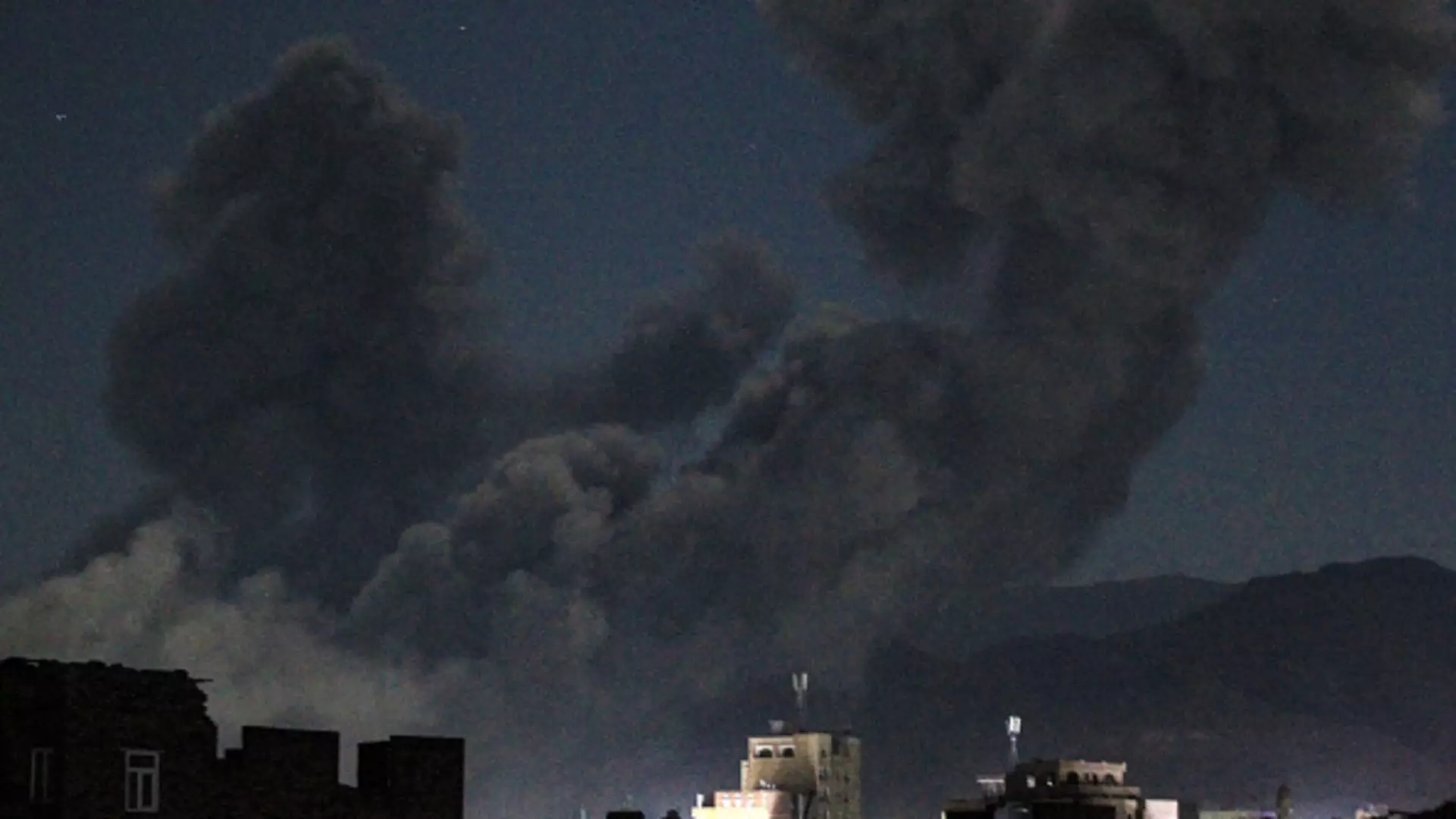In an alarming move, U.S. President Donald Trump has initiated large-scale military strikes against Yemen’s Iran-aligned Houthis, a campaign overshadowed by an astonishing number of lives lost—at least 31 people, many of whom were innocent civilians, including women and children. This military campaign, which serves multiple geopolitical purposes, marks an escalation in U.S. military involvement in the Middle East and raises significant ethical and political questions about national conduct in warfare. While national security is a crucial priority, the reckless disregard for human life evidenced in these strikes is a stark reminder of the fraught and often misguided nature of American foreign policy.
Political Machinations: A Delay in Diplomacy
To understand this military operation, one must consider the political theater that is currently unfolding. Trump’s aggressive posture towards the Houthis is not merely a reaction to maritime threats; it serves the dual purpose of distracting attention from domestic troubles while also demonstrating his commitment to a hawkish foreign policy. In his warning to Iran—his so-called main adversary—he declared that any threats to the U.S. would be met with devastating force. Through incendiary rhetoric, Trump is fortifying his position, but at what cost? The Houthis, deemed “terrorists” by the Trump administration, are seen here as pawns in a larger geopolitical chess game, one where regional stability is sacrificed for the sake of American bravado.
The harsh truth is that Trump’s reliance on military intervention rather than diplomatic strategies represents a fundamental misunderstanding of international relations. Engaging in warfare without seeking negotiations or dialogue fails to tackle the root causes of conflict. Given the Houthis’ complex political alignment with Tehran, perhaps diplomatic overtures, instead of violence, could yield more sustainable outcomes. For all the bravado and bravura, these strikes highlight a troubling trend of escalating military action without a coherent plan for peaceful resolution.
The Dreadful Consequences: Civilian Casualties and Human Suffering
The casualty figures from the U.S. airstrikes in Yemen are disturbing and, tragically, not surprising. With reports indicating that the majority of those killed were women and children, one cannot help but question the moral compass guiding this campaign. The Houthi leadership characterized the U.S. actions as a “war crime”—a label that resonates even more painfully when viewed through the lens of international law and human rights.
What of the people on the ground? As residents of Sanaa described the chaos ensuing from the airstrikes, their words painted a horrific picture. The blasts felt like an earthquake, sending shockwaves of fear among families, thrusting children into a reality they should fortunately be unbothered by. Wars are disproportionately brutal on civilians, and in Yemen, where countless people already suffer from humanitarian crises, the American military intervention only exacerbates existing vulnerabilities.
Far from being a calculated military response, these strikes represent a tragic failure to honor the sanctity of human life amidst geopolitical strife. If the United States truly values human rights and democracy, it must prioritize humanitarian considerations in its foreign policy, placing civilians at the forefront—rather than as collateral damage.
The Diplomatic Dilemma: A Slippery Slope to Further Conflict
The recent escalation of military action coincides with an upsurge in Iranian defiance and Houthi resolve. Iranian officials have vehemently rejected any notion of negotiating with the United States in light of these attacks, asserting that the Houthis possess their own operational independence. Trump has inadvertently fostered an environment where diplomatic bridges are burned, leaving both sides entrenched in their extremities.
Moreover, Trump’s moves have implications beyond just the Middle East—impacting U.S. relations with other global powers like Russia. His administration’s interactions with Russian officials regarding Yemen mark a dangerous path. America’s military maneuvers are often viewed less as legitimate deterrence and more as provocative actions that escalate tensions on multiple fronts, inviting retaliation and further entrenchment by adversarial powers.
As political leaders continue to throw rhetorical bombs, it becomes clear that the path forward requires a reassessment of military engagement in favor of dialogue and multilateral cooperation. The global community is watching this theater unfold, and the stakes couldn’t be higher.
The Urgency for Change: A New Foreign Policy Paradigm
In navigating these complex issues, the urgent need for a reimagined foreign policy framework becomes apparent. A nuanced understanding of regional dynamics is critical, as is the need for policies that promote cooperative security rather than militaristic domination. The United States must learn from past misadventures—military action without a clear exit strategy or ethical consideration invites not just chaos but deeply entrenched animosity and resistance.
To be replace aggression with diplomacy, and suffering with solidarity is an ambitious but necessary undertaking. It requires rethinking our strategies, questioning dogmatic views associated with military action, and ultimately, embracing peaceful coexistence over conflict. As the bloodshed continues, the question remains: will the United States rise to the occasion or fall deeper into an abyss of violence?


Leave a Reply